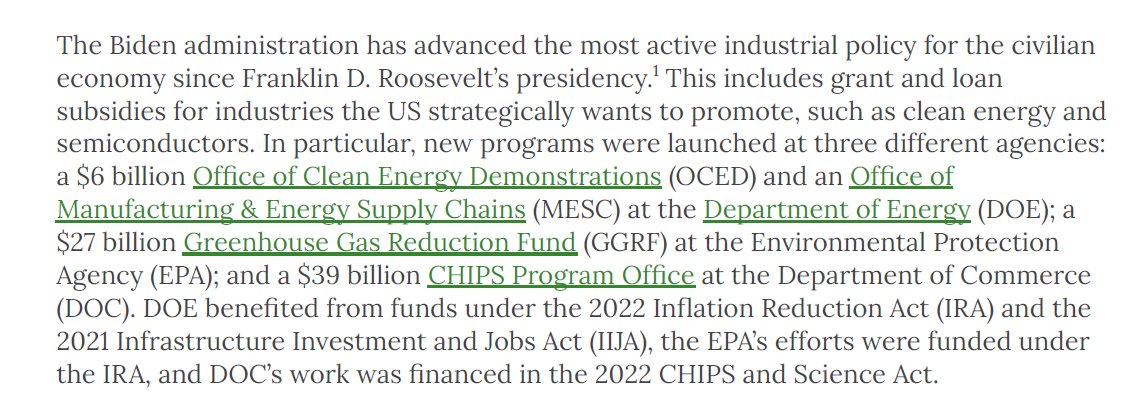The US Innovation and Competition Act, which passed the Senate on a bipartisan basis earlier this month, included the Build America, Buy America Act, which significantly tightens Buy American rules.
congress.gov/bill/117th-con…
congress.gov/bill/117th-con…
The congressional findings section makes clear the multifaceted reasons why the spending of tax dollars for procurement purposes is unlike spending by private market actors. 





The bipartisan agreed definition of "infrastructure" goes beyond the "roads and bridges" definition some in the GOP have insisted on, and included water and broadband. 

The Act would require OMB to issue guidance so that procurement officers aren't breaking up procurements to avoid applicability of the Buy American Act. 

I think the bigger problem is that procurements that are too big avoid Buy American requirements.
https://twitter.com/toddntucker/status/1403843836040859653
It incorporates anti-dumping considerations into procurement decisions - a linking up of two systems usually kept separate. Big change. 

Trump increased the domestic content requirement from 50 to 55 percent. Congress is now calling on a bipartisan basis for a much higher jump - up to as much as 75 percent. 

They kinda sorta fix the Acetris / Trade Agreement Act problem of very minimal value added items being counted as domestic products. 

To really fix the problem, Congress should explicitly call for "US end-made product" to be one where "ALL manufacturing processes involved in production of the end product occur domestically."
https://twitter.com/toddntucker/status/1362130121830858753
And here's where the thing appears contradictory: an insistence on WTO compatibility.
If that's the requirement, the US will not be able to get around Buy American not applying for many procurements over $182 k. For coherence, should have called for WTO reform.
If that's the requirement, the US will not be able to get around Buy American not applying for many procurements over $182 k. For coherence, should have called for WTO reform.

• • •
Missing some Tweet in this thread? You can try to
force a refresh











